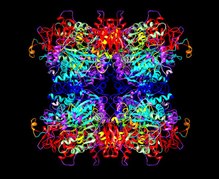… too much is too much …
I take the step …and I invite all beekeepers to do the same…
(translation using Google translate of the post “prenaient leur destin en main“)
Swiss beekeepers have been warning about the death of bees in Switzerland for about 20 years…
These appeals were heard, widely relayed in the media and transmitted to the various national and regional authorities… Measures have been announced, taken and are being implemented. But do they meet the expectations of beekeepers? Do they meet the needs of domestic or wild bees? In our view, this is far from being the case. Beekeepers and their bees are confronted with two main problems: the Varroa  parasite which decimates colonies and spreads many diseases pesticides spilled on crops that poison bees and deposit insidiously residues in wax and honey and other hive products.
parasite which decimates colonies and spreads many diseases pesticides spilled on crops that poison bees and deposit insidiously residues in wax and honey and other hive products.
After all these years, the Swiss Confederation has put in place a “bee plan” and a “phytosanitary products plan” which do not offer a true answer to these two problems. On the contrary, additional constraints are introduced in the form of reinforced sanitary controls, without offering real prospects for solving the crisis the bees are facing. A recent publication confirms that domestic and wild honey bees bring the equivalent of CHF 350 million to Swiss agriculture free of charge and without any return for bees and beekeepers. On the contrary, the Swiss Confederation is introducing timely measures to reduce pesticides on crops, with a chimeric objective of 30% reduction in ten years, while the measures envisaged will achieve at best a reduction of 12%.
Faced with this deplorable fact, it is clear that beekeepers and domestic and wild bees are left to their own devices. All that is left to the profession is to take control of its destiny. If the Varroa problem still requires important research to be curbed, the insidious poisoning of bees and hive products can be avoided today. For my part, my decision is taken, I remove my bees from the zones where they can be inxicated, to implant them in organic farms who will pledge not to poison them and to whom I am ready to offer my services and those of my bees for free, to concentrate on the issue of varroa. This leaves me with only a beekeeping problem, my products will be of better quality and the production of organic products will only be better. (suite…)
Lire la suite



